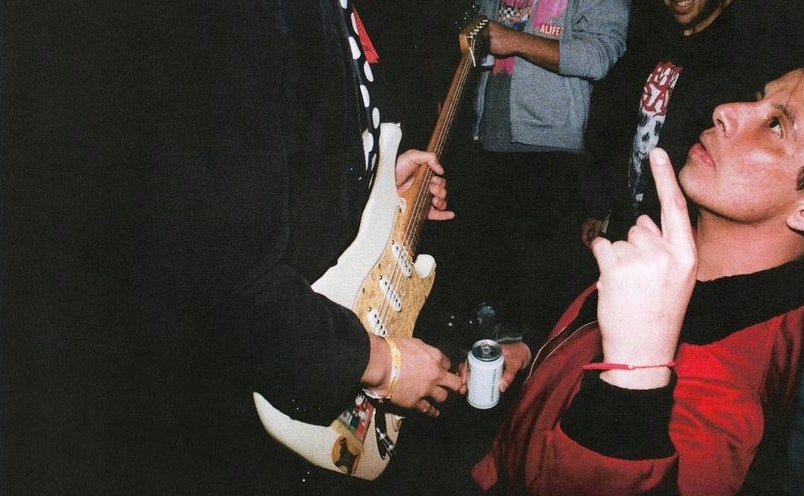
■ Discover New Music
The music industry operates in a constant flux, endlessly redefining its own rules and parameters, seemingly by the minute. Even still, throughout decades of instantaneous change, some constants stand the test of time – one of these is touring.
That's not to say that the travelling live show hasn’t evolved. Between the eras of Lisztomania and Beatlemania, touring has undergone countless evolutions, and has progressed even more rapidly since the mid-20th century. These metamorphoses have helped the touring industry adapt to its ever-changing arena and remain a major part of the entertainment industry decade after decade.
Today, touring is still a viable means of generating interest and revenue for artists, and in some ways is more approachable than it’s ever been with the resources and mechanisms that have been built around it throughout the years. But in addition to the many ways it’s progressed and improved, there are also many unique challenges that touring today brings, especially for those on the independent level.
I’ve been touring on and off for eight years, and a recent month-long North American stint playing drums for Nitefire further reinforced my belief that providing tangible experiences creates the most real and most lasting connections with audiences.
Going on the road guarantees challenges, especially at an early stage, such as (including but not limited to): barely (or not at all) breaking even financially, unimaginable amounts of hours in a van, barely (or not at all restfully) sleeping – the list goes on.
But the rewards can far exceed the hardships, not only in terms of outreach and the chance of eventual financial success but most of all in terms of the connections, experiences and memories that come with this idiosyncratic territory. In this article, we’ll explore methods of maximizing the benefits that can come from hitting the road via two guiding principles: being prepared and standing out.
While it may seem painfully obvious, it’s important to acknowledge what aspiration should take first priority when preparing for a tour: put on the best show you possibly can. Deciding the specifics of what makes a show really good is truthfully too subjective to discuss in depth here. But I would like to espouse a framework that can be applied generally when thinking about ways to improve a live show. Beyond finding a performance group with chemistry and learning and rehearsing a set, and what seems to get lost very often, it’s key to prioritize having fun and creating a tangible energy over achieving musical perfection, because, quite simply, audiences respond most to performers genuinely enjoying themselves.
For many artists, whether or not they’re signed to a label, touring can be logistically and financially daunting. This has probably never been truer than today with dilemmas like inflation and record high gas prices to consider. But for musicians truly pursuing a long-term career on the road, it’s important to look at touring and selling merchandise as some of the last truly viable revenue streams for artists once they’ve reached higher levels. So while pay can be nominal to nonexistent on small tours, it’s helpful to think of it as an investment. Creating a robust touring history is key in terms of pursuing larger opportunities down the line. In these cases, it’s especially important to deliberately consider the logistical/financial aspects of a tour.
When possible, arrange a guarantee with venues/promoters well in advance of a performance. This can be an agreed-upon flat performance fee and/or a percentage of ticket/bar sales. Leaving your rate up in the air can result in little to no compensation, which is not sustainable on a tour, especially one with no financial support from a label or sponsor.
Even on something smaller scale, such as a routing mainly consisting of DIY events or house parties, one should discuss potential compensation with the organizers beforehand and reach an agreement ahead of a performance.
For example, even if the show hosts can’t offer a guaranteed rate, it’s worth making sure the event is ticketed or that a donation for touring acts as an optional price of admission is encouraged.
Prioritize making quality, attractive merchandise, and put as much effort into selling it as you do playing your set every night.
On the right night, your merch sales can exceed your performance fee! In a way, selling a shirt is a microscopic representation of the potential benefit shared in putting on a live show.
Just like performing, selling merchandise is doubly positive in that you not only get paid, but you spread awareness about your music while doing so.
Further, when you sell a piece of merchandise yourself and connect with fans, they’ll leave the show wanting not only to broadcast the name of your band/project, but they’ll speak to the connection and memorability of the experience.
Having a few different pieces of merchandise to offer, providing several payment methods, and ensuring a consistent presence at the merch table from at least one band member at a time (especially directly after your set) are helpful practices that help move merchandise efficiently.
Travelling is possibly the largest expense to consider when planning a tour.
It’s crucial to estimate the cost of getting to your next destination, and ensuring you aren’t covering too much ground than you can reasonably cover with revenue from performance fees/merchandise revenue.
In the case of independent tours, there’s one very important word: Regional. Start regional, and expand from there.
The United States contains many regional circuits. This is an especially effective method in sprawling markets such as the United States: with so much ground to cover, it can be easy to bite off more than you can chew.
Historically, bands have found success branching out from their hometown, starting small and expanding outwards as their own touring operation grows. That being said, touring does also require some level of flexibility in its early stages. Because it is harder to get booked when an act is starting out, it may require occasionally accepting certain counterintuitive routings, even sometimes forcing them to explore outside of what’s considered the most sensible region for them to be playing at the time.
As is the case with most aspects of touring, routing requires a lot of deliberation and consideration: In general, try to play shows in a geographically manageable sequence, but, if a show is a good enough opportunity, it may be worth going out of your way to play it.
Taking a sparing approach to lodging can immensely improve the financial viability of a small tour. Even inexpensive hotels add up to a large expense pretty quickly night after night. Staying with friends or family where possible is a great way of offsetting lodging costs. In certain cases, venues offer artists a place to stay as part of compensation. Being aware of any opportunity to save on this front is important on a small-scale tour.
The amount of access that exists in the modern era is astounding, and allows for so much progress within the music industry. The flipside is that there is now a much larger pool of artists to choose from, and it can be easy to get lost in the noise with more creators saturating the market than ever before. Here are some practices artists can employ on the road in order to stand out from the rest.
It would be impossible to overstate the importance of keeping a catalogue of previous touring and local play history, highlighting recognizable artists you’ve performed alongside, established venues you’ve played at, and the type of crowds you were able to generate at these shows. The more detailed the accounts of play history the better – good documentation will lead to better opportunities.
Similarly, it’s important for an act to broadcast touring activity to the general public in an engaging and exciting fashion. Getting quality photos/videos of performances is always rewarding. In addition to more typical press photos, showcase your comfort and confidence within live environments.
Always encourage managers, friends, and really anyone you can enlist, to take good photos and videos of your shows and keep them. Constantly strive to generate an energy that attracts fans, and constantly bottle up and immortalize this energy via photo and video.
At an independent level, an artist should essentially be prepared to be their own tour manager, booking agent, roadie… essentially, their own everything.
A tour manager is a luxury that only comes into play once there's a budget to pay them. It takes organisational and other responsibilities (i.e. driving, merch setup and sales, collection of performance fees, etc.) off the shoulders of an artist.
A booking agent usually comes in to play once a band has proven that they can tour on their own on a smaller scale, stepping in to direct artists towards bigger opportunities.
Tour managers and booking agents can both be incredibly helpful level-ups to touring musicians, but up until they’re in the equation, and to a large extent even after their integration, it’s imperative to be adaptable and self-sufficient on the road.
In either case, no matter how big or small the road crew is, the fact is, touring requires a ton of work. A penchant for multitasking and adapting well to different roles within a touring party goes a long way given the sheer amount of responsibilities and considerations that come with taking a show on the road.
Taking care of oneself and fellow travellers should be the core and truest priority of a good tour.
Tour fatigue is an unfortunate prerequisite of the job, and it comes in many forms. The best type of touring party looks out for one another and takes all of this unavoidable stress into account, dividing up roles and responsibilities fairly to ensure everyone can live as balanced a life as possible in a perennially draining context.
It can span from something relatively mundane, like fitting in a healthy meal or a bit of exercise when possible, to something more personal, such as giving bandmates space when possible to make personal phone calls or just get a rare moment of alone time.
Good health and safety are the touring musician’s largest and most dire assets. It’s crucial to make sure everyone in the party cares deeply about creating environments conducive to a sort of nomadic prosperity.
Personally, I’ve never once gotten off of a tour without a profound sense of exhaustion, but it’s an exhaustion that is, time and time again, reliably outweighed by the innumerable shifts of perspective and life experiences that are gained from this unique and incredibly rewarding vocation. It is not for everybody, but for some people, it is everything.
